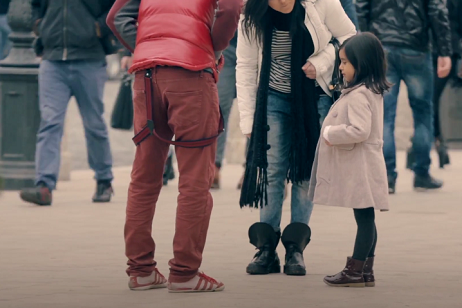UNICEF social experiment: 6-year-old alone in a city (VIDEO)

What would you do if you saw a six-year-old alone in a public place?
This video below shows how Georgians reacted.
The video on stigma against children living and working on the streets was created by UNICEF Georgia for the UNICEF’s (United Nations Children's Emergency Fund) flagship publication State of the World’s Children Report.
The video was produced by Tbilisi-based advertising agency Switch Communications.
UNICEF said its goal was to influence the stigma against children in the streets and to change society’s attitudes towards these children "who need our attention and care”.
"Change starts when you choose to care” - is the slogan of the video. Producers believed the video would make people think about their own attitudes towards children that they saw every day in the streets.
UNICEF Georgia said children who lived and worked on Georgia's streets were "disadvantaged" and had been "left behind” by society. These children had no access to education and healthcare.
Often they are unregistered and subject to various forms of violence. Instability and inappropriate living conditions make these children among the most vulnerable groups of society,” UNICEF Georgia said.
Last year, with support of UNICEF and the European Union (EU), Georgia established a state mechanism to protect the rights of children who lived and worked on the streets and to ensure their reintegration into society.
Before this there was no state support in place to assist these children.
Within this initiative, basic services like mobile teams, daycare and crisis intervention centres, and 24-hour care services were developed.
The children who lived and worked on the streets were identified and provided with immediate support and protection. Mobile team members, psychologists and social workers worked with the children to include them into existing social and child protection services such as foster care and small group homes or to reintegrate them into their biological families.
UNICEF Georgia said more than 600 children and their families had been supported by the initiative.
 Tweet
Tweet  Share
Share